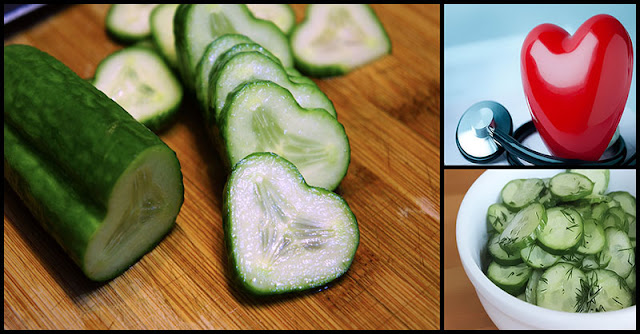Apple is not the only fruit that can keep the doctor away, cucumber can also do that. Italian researchers showed how cucumbers can protect the endothelial cells that line the inner part of the vascular system. A water/ethanol extract made from the common gourd is shown to prevent inflammation caused by lipopolysaccharides. Their study was published in BMC Complementary and Alternative Medicine.
Your vascular system is responsible for transporting almost everything throughout your body. If its integrity is broken, it causes serious health problems such as heart diseases. Endothelial cells play an important role in the vascular integrity. They are vulnerable to lipopolysaccharide, the one that triggers inflammation in the endothelium layer. Inflammation is the one that causes heart problems like thrombosis, vasoconstriction, and coagulation.
Fortunately, there are protective molecules that can lessen the negative effects of pro-inflammatories. Researchers are continuously looking for these bioactive compounds’ sources in the medicinal plant found in the folk medicine.
Advertisement
The cucumber is used to treat skin irritation and inflammation in the Ayurveda system of traditional Indian medicine.
It was reported in earlier studies that an extract made from cucumber is a strong antioxidant. On the other hand, some studies concluded that its aqueous extracts can reduce the inflammatory effects of ulcerative colitis. Yet, there has been no study that covered the anti-inflammatory properties of the vegetable.
Determining The Effectiveness Of The Protective Benefits Of Cucumber Extracts
A team of researchers from the University of Bologna experimented with a water/ethanol extract made from cucumber on an in vitro model of endothelial cells. An aortic endothelial cell harvested from slaughtered pigs were used as the basis for their experimental cell cultures.
The cytotoxicity of the cucumber extract was tested at doses of 0.02, 0.2, and 2 milligrams per milliliters (mg/mL). They proceeded to conduct a number of in vitro tests that exposed treated and untreated pig aortic endothelial cells to 10 micrograms of inflammatory lipopolysaccharide.
In each group, the researchers measured gene expression of endothelial cell markers, the types, and amounts of chemokines and cytokines that were released during the test, and the occurrence of in vitro angiogenesis. The last is the formation of new blood vessels from existing ones; it is considered to be a negative effect if it is triggered by lipopolysaccharides because the growth of the new vessels is uncontrolled.
Advertisement
Cucumber Can Protect Endothelial Cells From Toxic Lipopolysaccharides
The results of the experiment revealed that cucumber extract alleviated inflammation in pig endothelial cell cultures. Depending on the dose, it was able to prevent the harmful effects of lipopolysaccharides, an endotoxin that is produced by many harmful bacteria. The larger the dose, the better the effectiveness of the treatment.
The expression of ZO-1, a tight junction molecule that kept the endothelial cells bound to the endothelium, was improved by the extract. Larger numbers of detached and round cells were displayed in the untreated cultures.
In addition to this, it was also found that the extract was able to inhibit the expression of TLR4, a gene that controls the sensitivity of endothelial cells to lipopolysaccharides. When the level of TLR4 activity is lower, chances of inflammation taking place in the endothelium decreases.
Moreover, the cucumber extract also prevented the secretion of inflammatory substances that appear either early (seven hours) or late (24 hours) after the treatment. At the same time, it improved the levels of anti-inflammatory cytokines that prevent inflammation and also raised the secretion of cytokines that prevented inflammatory angiogenesis.
Lastly, it was found that the extract induced the expression of vascular protective Heme oxygenase-1 (HO-1), an enzyme that manages the number of protective genes present. HO-1 prevents atherogenesis, apoptosis, and thrombosis.









